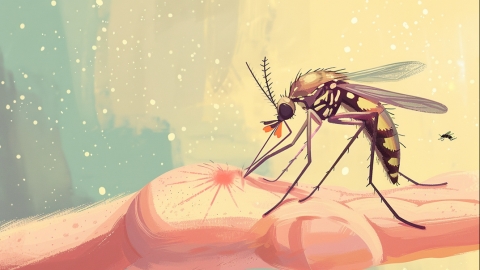Can mosquito bites spread HIV?
Generally, mosquito bites do not spread the human immunodeficiency virus (HIV). The detailed explanation is as follows:

AIDS (acquired immunodeficiency syndrome) is caused by the human immunodeficiency virus (HIV) and is primarily transmitted through sexual contact, blood, and mother-to-child transmission. HIV cannot survive or reproduce inside mosquitoes. The digestive enzymes of mosquitoes rapidly break down HIV that enters their bodies, rendering the virus inactive. When a mosquito bites, it first injects its own saliva, which contains anticoagulants to prevent blood clotting and facilitate feeding. However, mosquitoes do not inject blood from their previous meal into a new host. Even if a mosquito previously bit an individual with AIDS, blood containing HIV will not be transmitted to the next person bitten.
From the perspective of viral load, the amount of blood ingested by a mosquito during a single feeding is extremely small, and the quantity of HIV contained within it is far below the threshold required to cause infection. Furthermore, after feeding on blood, a mosquito requires several days to digest it and will not bite multiple people in a short period, further reducing the risk of transmission. In general, there is usually no need to worry about the risk of HIV transmission through mosquito bites.






